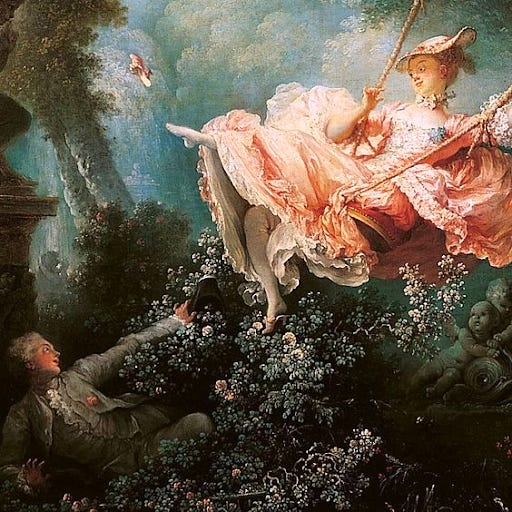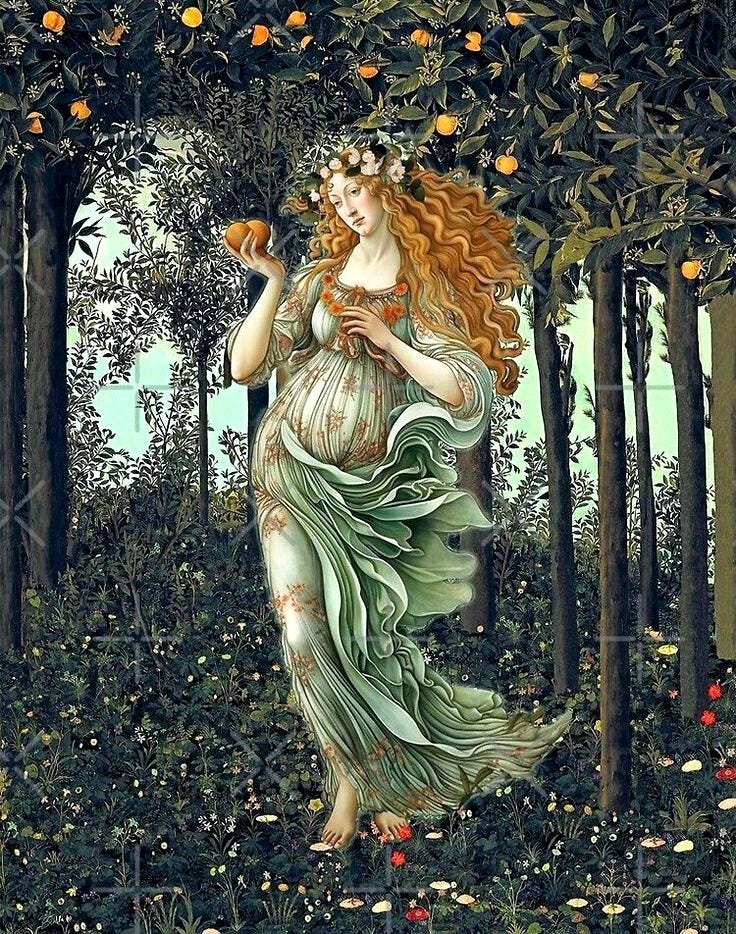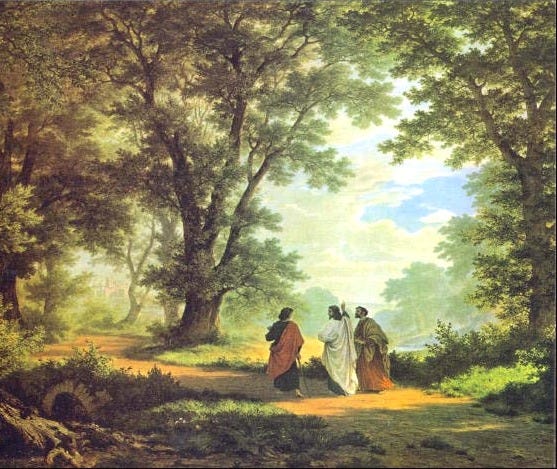T.S. Eliot’s Warning: How Casual Sex Destroys Civilization
A century-old poem reveals the hidden cost of modern sexual ethics.
T.S. Eliot’s The Waste Land is often regarded as the greatest poem of the 20th century. It’s a tragic work that captures the despair of the Lost Generation and the cultural decay that followed World War I.
At its center lies a jarring portrait of sexual immorality and its hidden consequences. Eliot depicts a casual encounter, yet shows that casual sex is never truly casual.
His poetry reveals how promiscuity not only harms the soul, but fractures families and erodes the very trust on which society depends.
Here are the hidden dangers of casual sex according to Eliot, and what healthy sexuality looks like.
Reminder:
Subscribe to support my mission of restoring Truth, Beauty, Goodness, and God to the heart of the West!
The Lost Generation
The Waste Land was first published in 1922, a mere 4 years after WWI. It details the fallout from the trauma of the war on the Lost Generation.
It’s almost impossible to overstate the impact this war had on mankind.
Trench warfare was filled with inhumane brutalities that sent millions slaughter, and left millions more scarred with PTSD. Effectively, the heart and soul of Europe itself was left gutted in despair of the pointless brutality.
As such, the Lost Generation was born — an era of men and women who abandoned meaning in life.
They lost faith in morality, God, and purpose, and felt life was an absurdity.
To demonstrate the point, one can consider that Albert Camus was a popular absurdist philosopher of the time. His magnum opus — The Myth of Sisyphus — asks:
“Why shouldn’t we kill ourselves?”
This is the cultural milieu in which Eliot wrote The Waste Land. It dramatizes the despair of modern man down to its roots.
Eliot’s task was not just to dramatize this despair, but also ask how we can escape this spiritual crisis and seek a meaningful life in the modern world.
Now let’s look at the poem for an answer.
Sex, Regret, and Death
The Waste Land is divided into five sections, but we’re going to focus on section three, titled “The Fire Sermon.”
This section deals with lust.
Its argument is jarring but simple — casual sex destroys the virility of society, turning it into a “Wasteland.”
To explain, Eliot details a sexual tryst between an unnamed man and woman in the latter’s London apartment. He writes:
“Flushed and decided, he assaults at once;
Exploring hands encounter no defence;
His vanity requires no response,
And makes a welcome of indifference…
He bestows one final patronising kiss,
And gropes his way, finding the stairs unlit . . .
She turns and looks a moment in the glass,
Hardly aware of her departed lover;
Her brain allows one half-formed thought to pass:
'Well now that’s done: and I’m glad it’s over.’”
It’s sometimes joked that this is modern literature’s first portrayal of the dreaded “regretful hookup,” but there’s far more than mere regret happening here.
Interestingly, Eliot pairs this scene with imagery of a polluted Thames river:
“The river bears no empty bottles, sandwich papers,
Silk handkerchiefs, cardboard boxes, cigarette ends
Or other testimony of summer nights. The nymphs are departed.”
If The Waste Land is about existential despair, why does the heart of this poem deal with casual sex and a polluted river?
Well rivers represent vitality, and so Thames represents the soul of London — Eliot says the soul of modern England is festering with rot.
He stresses that the “nymphs have departed,” — meaning the wonder, luster, and morality of tradition is dead and gone. We no longer believe in God, myth, or fairy tales.
Yet Eliot pairs this polluted river with casual sex.
His point:
When man degrades the sexual act, he not only destroys his own vitality, but pollutes the soul of civilization itself.
Just as the Thames — the soul of London’s society — is polluted and dead, so too are London’s citizens portrayed as walking corpses, as evinced through the nameless man and nameless woman.
So if casual sex is immoral, what does healthy sexuality look like? What does a virtuous, life affirming, sexuality look like that could restore life to modern man?
The Love that Begets Life
Traditionally speaking, casual sex was immoral because it reduced sex to pleasure.
This view is dehumanizing because it makes the human body itself an “instrument of pleasure,” as noted by Herbert Marcuse, a leading advocate for the Sexual Revolution.
Conversely, traditional sexuality doesn’t make the body an object of pleasure, but a vessel of life and charitable love:
Sexuality is virtuous when expressed in marriage and open to procreation. It elevates the conjugal act from carnal pleasure, to a living manifestation of spousal vows for unconditional love.
Such a love reflects the image of God himself, and is the same love the begets new children — made in the image of God.
It’s also this same love that builds healthy families — the foundational unit of society — and by extension, leads to vitality, trust, and healthy civilizations.
In a sense then, a civilization’s destiny rises and falls in accordance with its sexual ethics.
To speak both spiritually and literally, mankind’s sexual ethics is nothing more than a matter of life and death.
Conclusion
The return to virtuous sexuality is difficult — not only for the restraint it demands over the sexual faculties — but for the endurance and fortitude of faith it requires in a bleak, fallen modern world.
The Waste Land may lament a world heavy with despair, yet it is not without hope.
Its final section, “What the Thunder Said,” is filled with apocalyptic imagery that hints at a providential reality:
“Who is the third who walks always beside you?
When I count, there are only you and I together
But when I look ahead up the white road
There is always another one walking beside you
Gliding wrapt in a brown mantle, hooded
I do not know whether a man or a woman
—But who is that on the other side of you?”
This passage echoes Scripture — Christ walking with His disciples on the road to Emmaus after His resurrection, though unrecognized.
Eliot’s point is that while fallen sexuality reflects a world that cries “God is dead,” God has still not abandoned man, even if man has abandoned God.
Providence remains near to the shattered hearts of modernity, unseen yet present.
We may not feel God’s presence; we may struggle amid the chaos and tribulations of our age. But a fallen world is not an abandoned one. Even in the bleakest moments, Truth still reigns supreme over reality.
Eliot’s later writings affirm this hope: no good deed, virtuous act, or fervent prayer falls on deaf ears.
By the end of his career, he championed not only a return to a healthy sexuality that nurtures loving families, but the birth of a new modern man with a reinvigorated faith in God.
For only when love is rooted in God can it bear the fruit that renews the soul, the family, and the world.
Thank you for reading!
Subscribe for free if you would like weekly emails on the Great Books, and their life lessons on Truth, Beauty, and Goodness
And remember:
Paid members receive an additional members only email every week!







Wow! This is profound truth in simplicity. God help us to keep our body under 🙏. Now off to read more of T. S. Elliot 🔥
Wonderful post!! 👏 I love Eliot for many reasons - and you have captured so much of Waste Land’s brilliance here.
It reminds me of Eliot’s Hollow Men - when the Lord’s Prayer is fragmented by the persona’s lost ability to speak God’s word, having fallen into the “cactus land” of Dantean purgatory. I pray we all are able to bring “death’s dream kingdom” to earth by remembering that sexuality can be an expression of Divine Love when sanctified within the boundaries of authentic and dedicated relationships.